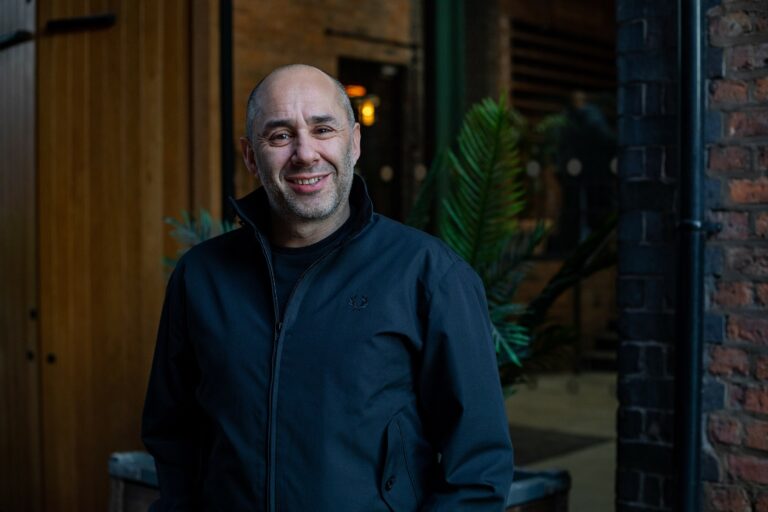2023 will go down as an annus horribilis for the tech sector with some high-profile failures and layoffs, however, there is reason to be optimistic in 2024, says Mark Kuhillow, Entrepreneur in Residence at Exchange.
It’s certainly a tougher tech landscape than in years gone by. One of the key challenges faced by established start-ups and scale-ups at the moment is that they’ve raised funds based on valuations which are difficult to defend in the current climate. As a result, many tech businesses are now managing their runway more closely to ensure survival.
These start-ups are potentially facing having to raise an interim round at a lower valuation than previously thought. This is forcing investors to sweat their assets, forcing founders to work even harder to achieve more within their pre-defined runway – if that is even possible.
Creating tech is more accessible than ever
In the start-up world, technology has also moved on to enable people to reduce their development costs. Using accessible tools and AI, founders can go from idea to MVP, and create their tech solution quicker, easier and with fewer people than ever before.
The very nature of technology is that it keeps on developing – it’s iterative. Even in the almost four years of the Exchange programme, founders from the first cohort would most likely approach their tech solutions in a different way if they were to do it again.
And because it’s so much easier to create a platform using no code or low code tools, practically anyone can create an MVP. Considering that having an MVP is the requirement to apply for the Exchange tech accelerator scheme, it opens up the programme to a much wider audience than ever before, which is an exciting prospect.
A start-up doesn’t need a developer or CTO to get to that stage anymore. A tech person can certainly help but we’ve now seen many people make their business work without these people involved at the early stages.
As tech opens up, so too does the diversity of entrepreneurs. As the barriers to becoming a tech entrepreneur fall and creating an MVP becomes more achievable, the type of people we see coming into the industry will change for the better.
Diversity in tech and the North can always be improved, but I love seeing the breadth of proptech, health tech, medtech, martech, and DevOps businesses in the area, led by people from all walks of life and backgrounds.
Softer skills are still needed to succeed
As tech solutions become more accessible, we go back to the softer skills required to be a successful founder. The age-old entrepreneurial skills. As well as solving a problem, a start-up needs to be led by an investable person. The common thread to start-up success is an exceptional founder who has found product market fit and is then able to recruit a team around them to help them scale.
The three start-ups and founders that I’ve been fortunate to invest in as part of the programme have got great businesses. They’re driven, they have a vision, they have kindness, and people – clients and customers – want to work with them.
What does the future hold?
We’ve seen a step change in tech start-ups and the business world through the introduction of generative AI. It’s brilliant from a workflow management perspective and it’s brilliant from a resource perspective. I would encourage everybody to investigate the tools that could be used to achieve further efficiencies. But beware, badging something as AI that doesn’t genuinely use it, or make a material difference to the product, will be detrimental.
Applying for an accelerator
While the economic conditions remain turbulent, entrepreneurs shouldn’t be deterred from pursuing an idea. There is never a good time to start a business but if you’re going to do it do it properly. Being an entrepreneur is a lonely journey and accelerators are a welcoming place where you can find people that have encountered and overcome similar problems. I think lots of people naturally gravitate towards the tech sector because they don’t quite fit into other ones, and having that community is really important for success.
Accelerator programmes can be a genuine catalyst if the right conditions are created. Support schemes are as important as ever in the current climate, and having a set of supportive contemporaries and sound advice from mentors, alumni and fellow founders, cannot be underestimated. Exchange has managed to create a community of like-minded people – it is a giant petri dish for tech businesses. It’s for that reason that in the three cohorts I’ve overseen, I’ve invested in a business from each one.
Being an Entrepreneur in Residence at Exchange has been brilliant. I love the fact that you’ve got older founders who are founding their first start-ups alongside people who are just finishing school or university and building their own business. Everybody is connected by their idea and dream. I’m really excited to see who is next through the doors in Manchester and Leeds.
Applications for the next cohort of Exchange, at Department, are now open for both Manchester and Leeds, closing 31 December 2023. You can apply by visiting their website.













